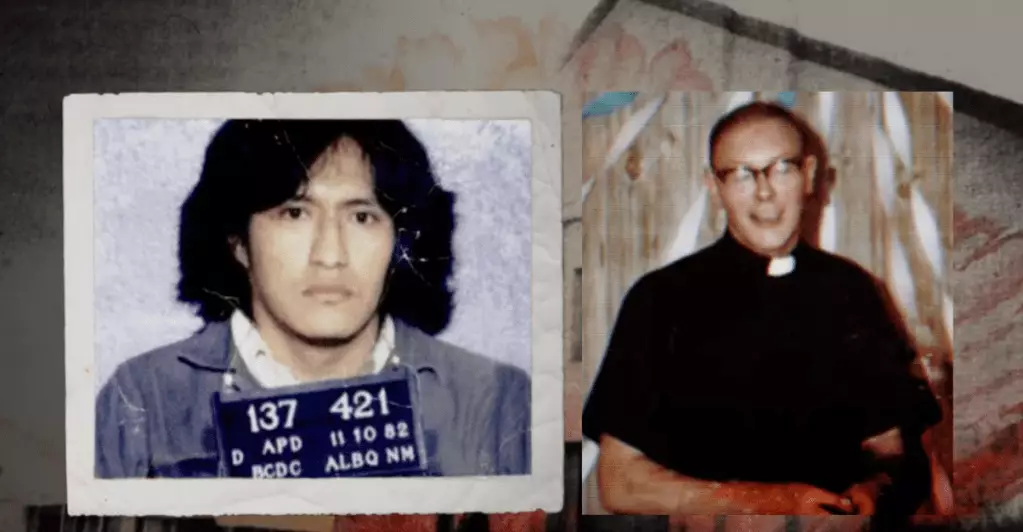In 1981, a horrific tragedy unfolded in the dusty landscape of Odessa, Texas, as the lifeless body of Father Patrick Ryan was found in a local motel. This grim discovery set into motion a series of events that would ultimately spotlight the pervasive injustices within the American legal system. Father Ryan, a closeted gay Catholic priest, was brutally murdered, and law enforcement’s response paints a dark picture of bias and failure. A crime scene twisted by prejudice and sensationalism soon implicated James Harry Reyos, a Native American man who, despite having a verified alibi, found himself ensnared in a web of systemic injustice.
The conviction of Reyos, who was not even in the vicinity of Odessa at the time of the murder, raises critical questions about the legal process and its susceptibility to manipulation. The fine line between justice and vengeance can blur drastically, and in Reyos’s case, it morphed into a grave miscarriage of justice that robbed an innocent man of two decades of his life. The fact that the authorities pinned this heinous crime on a minority is a reflection of a broader issue—how societal biases can taint the impartiality of institutions sworn to protect and serve all citizens, regardless of their sexual orientation or ethnicity.
Conviction Without Evidence: A Flawed System
Deborah Esquenazi’s documentary, *Night in West Texas*, seeks to shed light on this dismal chapter in criminal justice history. Esquenazi, who is no stranger to the vulnerabilities faced by marginalized communities, utilizes a compelling narrative to beckon viewers into the heart of injustice. Her focused lens on Reyos’s wrongful conviction unravels not just the story of one man but also highlights the collective failures of a community that chose to scapegoat an individual rather than pursue the actual perpetrators lurking in the shadows.
The film underscores how law enforcement in the oil-rich town of Odessa was not only quick to judgment but also turned a blind eye to glaring inconsistencies in their case against Reyos. In a rush to deliver a resolution, authorities chose to nourish existing prejudices, opting for a narrative that was both convenient and socially palatable. This tragic facet of Reyos’s story is not just about vindicating a single victim of oppression but also about addressing the systemic biases that led to such a gross miscarriage of justice—a cautionary tale relevant in contemporary discourse.
Reinvestigation: A Ray of Hope
The turning point in this deeply wound narrative came years later when Odessa Police Chief Mike Gerke took on the mantle of justice. His investigation breathed fresh air into a suffocated case, unveiling the harrowing truth that latent bloody fingerprints at the crime scene had never been processed—a colossal oversight that would eventually lead to the emergence of new suspects. It speaks volumes about the failures of the justice system, where an innocent man languished behind bars due to sheer negligence.
What is particularly compelling about this reinvestigation is the intersection of modern technology and longstanding injustice. The emergence of fingerprint analysis through the Automated Fingerprint Identification System (AFIS) highlights how the tools for justice have evolved, yet the scars of past failures remain fresh. The transition from despair to hope illustrates not only the resilience of Reyos but also the potential for redemption within a flawed system.
The Importance of Advocacy and Community
Esquenazi’s documentary does more than unpack the tale of Reyos’s wrongful conviction; it is a timely reminder of the crucial role of advocacy and community solidarity in rectifying injustices. Represented by the Innocence Project of Texas and aided by passionate advocates, the lonely battle for Reyos’s exoneration serves as a powerful assertion of the collective responsibility we bear toward those wronged by the legal system. The involvement of community members and organizations reflects an essential shift—one where individuals will not sit idly by as injustice unfolds but instead rise in defiance to raise their voices for the voiceless.
As we grapple with the repercussions of historical injustices, *Night in West Texas* not only captures a painful narrative but also mobilizes empathy and understanding. It forces us to confront the uncomfortable truths about our society’s treatment of the marginalized. In doing so, it ignites a spark of hope—reminding us that even in the darkest moments, there lies a potential for change driven by compassion and commitment to justice.


Leave a Reply